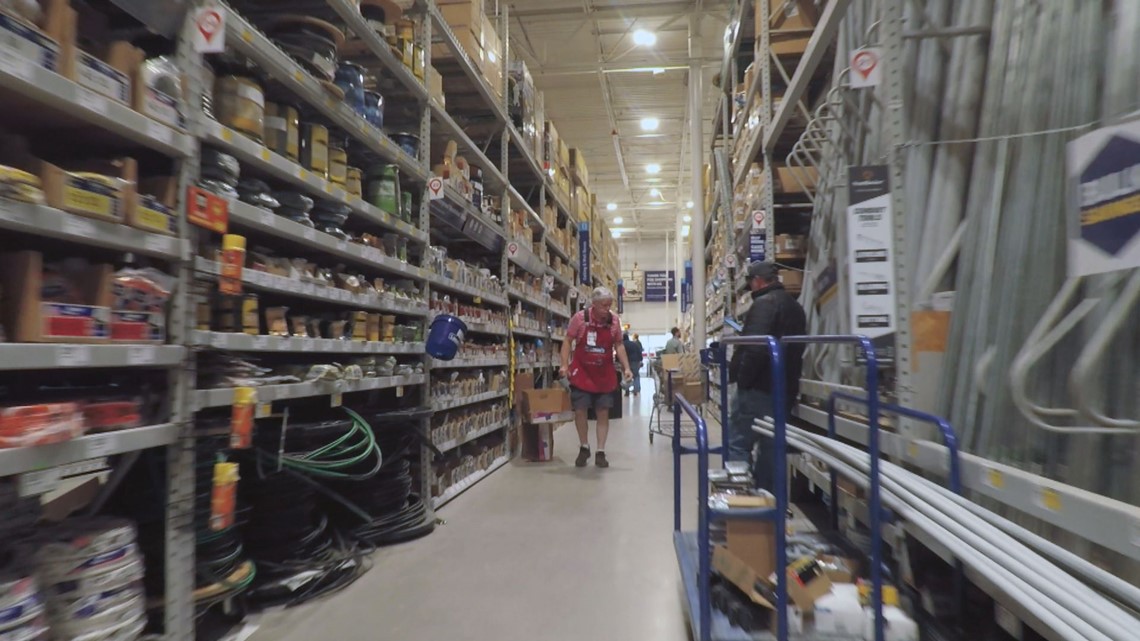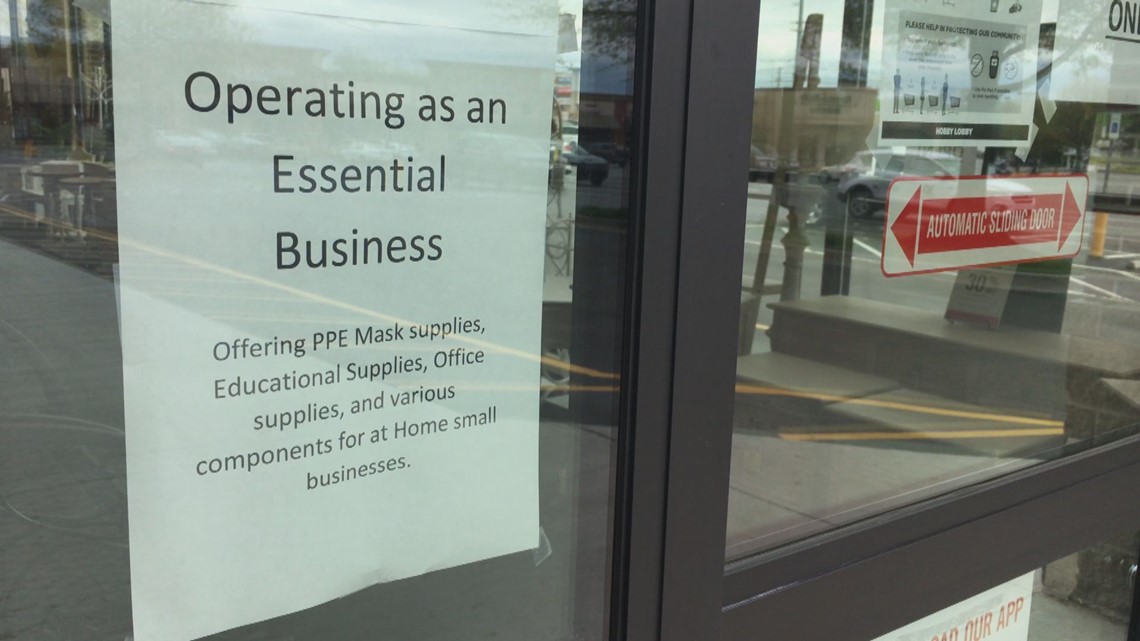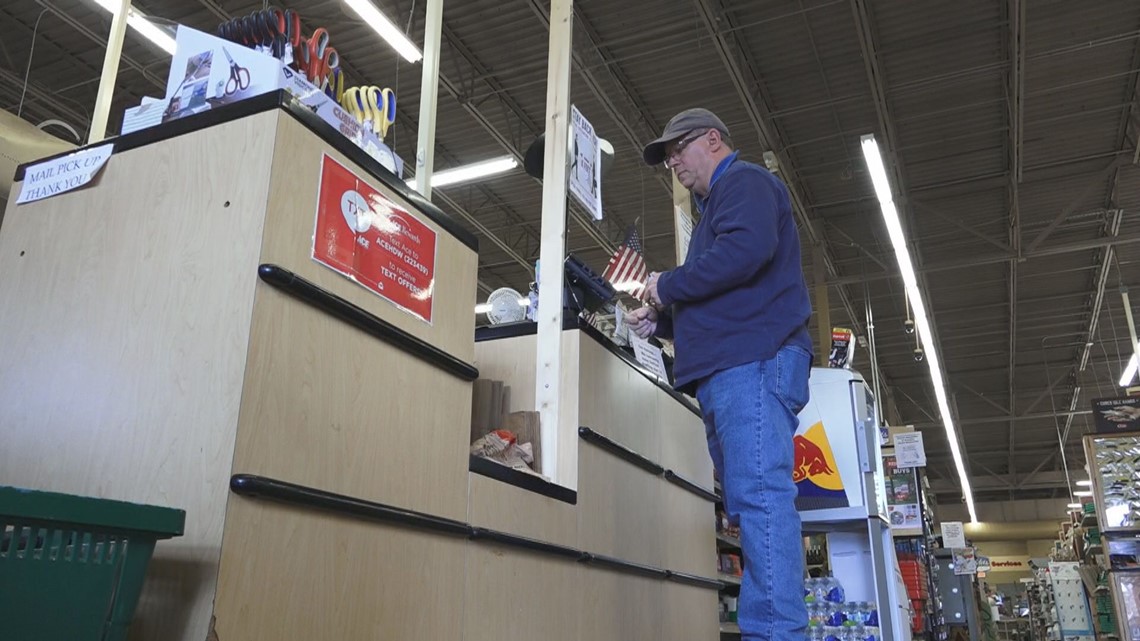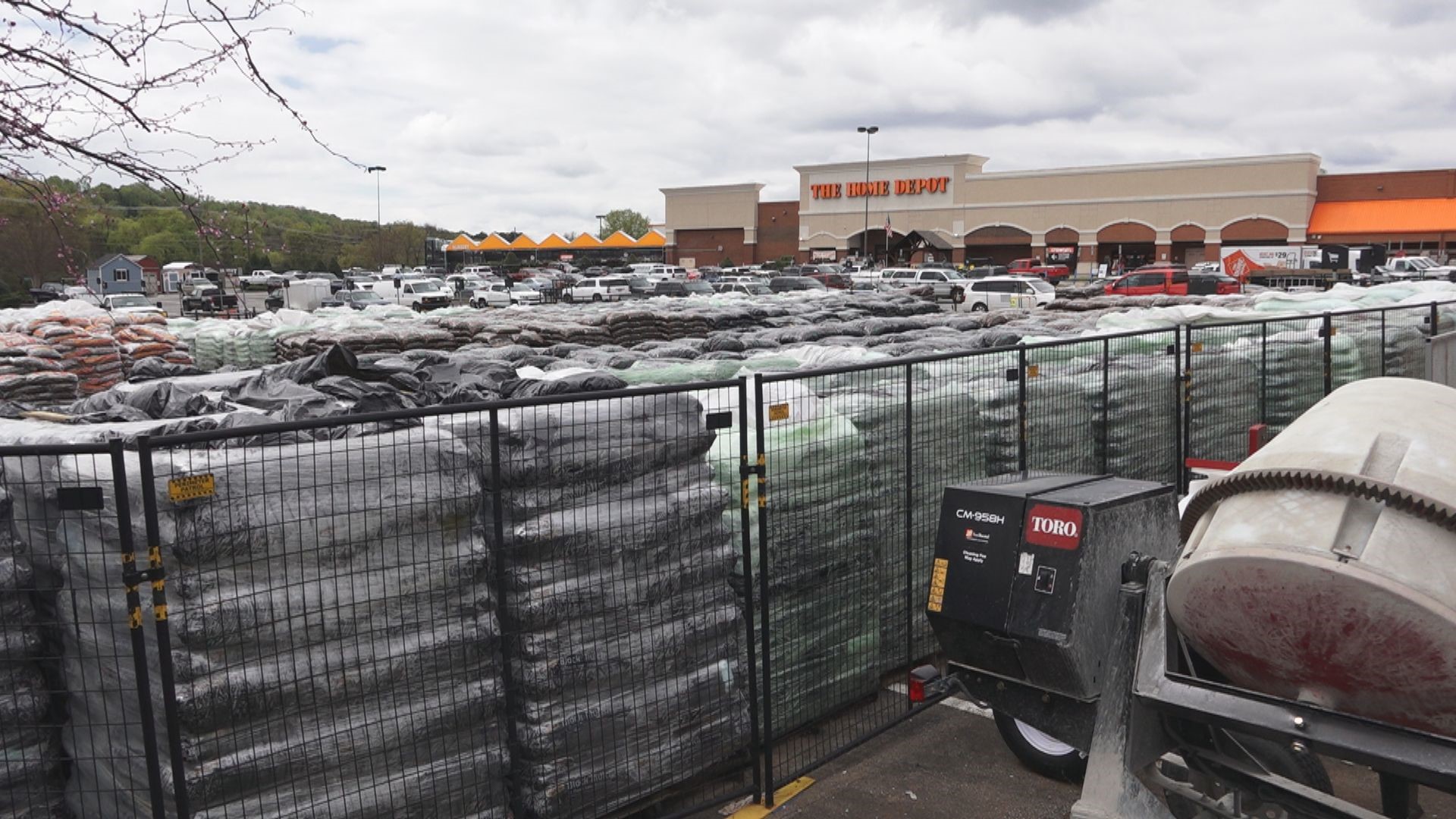KNOXVILLE, Tenn. — Tennessee Governor Bill Lee's statewide "safer at home" order closes non-essential businesses through April 14 in an effort to fight the spread of the coronavirus. So, exactly what is open?
Grocery stores, pharmacies, and banks are all considered essential services. Hardware stores also remain open as they provide supplies for emergency repairs.
"The essential services list was created by a federal level organization," said Dr. Martha Buchanan with the Knox County Health Department. "And [it is] based on what we need to continue living our lives. Like your toilet might break during a period of lockdown of other services. You need to be able to fix your toilet or sink or other things to make home repairs, so that your family can continue to live in your house."


Hardware stores are clearly some of the busiest spots in town for items other than emergency repairs. The customers are clearly buying non-essential items for home improvement projects and gardening while cooped up in their houses.
The stay at home order asks people to voluntarily limit their shopping to your essential needs.
Whatever you're shopping for, Buchanan recommends you go to the store solo.
"If possible, only one member of your family needs to make the trip. That lessens the number of people in the grocery store and allows more distance between people. While you're there, try to keep six feet between you and other people in the store," said Buchanan.


Some businesses remain open that may not immediately come to mind when making a list of essential services. For example, Hobby Lobby remains open as an essential business because it sells educational supplies, especially for art classes.
At the hardware stores, you'll currently find varying steps to enforce social distancing. Home Depot has customers form a line outside to maintain spacing between shoppers. There is no restriction at the entrance to Lowe's, but you'll find plenty of signs asking shoppers to maintain a six-foot distance from each other.
At Elder's Ace in Bearden, tape on the floor shows how far apart shoppers should stand in the checkout lines. The store also built a plexiglass shield between customers and the clerks at the cash register.


In Knoxville, residents can call 311 to report any non-essential businesses that defy the safer at home order. Eric Vreeland with the city mayor's office said the city received 71 calls during the last week, but it is yet to be determined how many of the complaints are valid. Violators of the rules face a $50 fine and court costs.
A list of essential businesses that will remain open include:
- Federal and state offices and services, including post offices and airports
- Essential government operations, such as law enforcement, transport and businesses that provide government programs and services
- Food and beverage: grocery and beverage stores, farmers markets, food banks, catering, convenience stores selling food, agriculture, food processing, feed mills and other businesses supporting the food supply
- Health care, mental and behavioral health, and biomedical research and businesses that support the healthcare industry, including health information technology
- Infrastructure operations, such as construction on hospitals, essential services and housing, building management and maintenance, and road work
- Sanitation and waste removal businesses and services
- Energy, water and sewage businesses and services
- Critical trades such as plumbing, HVAC, moving and relocation, and pest control
- Pharmacies and medical supply businesses, other businesses that directly support the drug and medical supply pipeline
- Vehicle fuel, support, service stations and businesses
- Banks, savings and loans, insurance companies and other businesses that directly support the financial sector
- Legal and judicial services, accounting, insurance and real estate
- Media, including newspapers, books, television, radio and other media services related to supply chain operations
- Home and business repair, hardware supply
- Transportation services, such as ride-share services, taxis, vehicle rental, and other essential public and private transportation necessary for essential activities
- Laundromats, dry cleaners, and industrial laundry services
- Warehousing and storage
- Manufacturing, distribution, and those essential for supply chain operations
- Daycare and childcare business will remain open but will prioritize children of parents working in essential services
- Home-based care for adults, seniors, children, and those with disabilities
- Hotels and commercial lodges will remain open specifically for lodging but will end entertainment or dining services in restaurants or group settings
- Housing and rental services may continue, but agents should practice social distancing, hold no open houses or gather in groups larger than 10
- Residential facilities, shelters, charitable and social services, such as those who provide necessities for the economically disadvantaged and others in need
- Religious and ceremonial functions such as weddings and funerals, provided they are following social distancing and health guidelines 'to the greatest extent practicable.' Churches are recommended to conduct regular services and gatherings online

